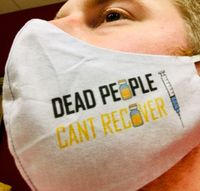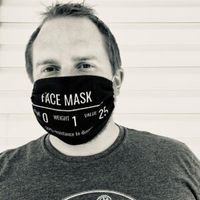How do you safeguard your heart and mind from the devastation of the fentanyl poisoning crisis? In the wake of countless preventable deaths, how do you stay afloat? What is emotional harm reduction, and how do I use it to survive in this sector? I was asked to cover this topic for The Drug Hub, and the irony is that I myself, am not doing particularly well as of late. Shortly after taking on the assignment, we here in Victoria lost a pillar of the harm reduction community – someone who was so loved and cared for that I could feel the collective grief surge as the news hit social media. Another face in my mental slideshow, another beautiful human with hopes and dreams, killed by toxic drug policy. At times, I am numb to the losses. It’s almost as if someone has taken a lighter to my nerve endings, and I feel sad about being unable to feel sad.
As a nurse working in harm reduction amidst the backdrop of an increasingly volatile drug supply, I am no stranger to grief and loss. In the last year however, I have witnessed more trauma and despair than in all of my previous years of work combined. The global pandemic created a perfect storm for drug toxicity deaths, and I’ve grown fearful of answering my phone in case there is more bad news waiting for me on the other end.
The pain is worse for me when I see how impacted my coworkers, friends, and community members are by the War on Drugs. They are collateral damage in this war; field medics trying to stopgap death while being under-resourced and unsupported. I want to take their pain away. Of course, I can’t do that, and truthfully none of us can. So the question then becomes, how do we mitigate the harms of this endless grief?
Enter emotional harm reduction.
I first heard this term about a year ago. I was speaking with a trauma counsellor who suggested my coping strategies were wrongfully geared towards avoiding grief and anxiety entirely. It was explained to me that, as long as I worked in this sector, there would be painful losses. To avoid this pain, would be to become despondent and ultimately ineffective in my role. No, we need to grieve, even when it hurts so much. So then, is emotional harm reduction just a fancy new wording for short-sighted self-care and resiliency tropes? If so, it sounds like emotional harm reduction is just more bullshit aimed at forcing humans to normalize what should never be normalized.
Self care and resiliency language have become tools of oppression in the field of harm reduction. Every day, communities of compassionate people are trying to keep each other alive and safe despite unwinnable odds.
When individuals falter, because they can no longer withstand daily trauma, they are met with suggestions like ‘take a bubble bath’ or ‘practice mindfulness’. Make no mistake, this is how we victim-blame and gaslight people who are understandably damaged from the work. This is how organizations and managers avoid being accountable to their staff, while simultaneously demanding them to continue showing up for work. Thankfully, that is not what emotional harm reduction is.
As an individual, I practice emotional harm reduction by surrounding myself with other caring people. I know that isolation is where my slideshow plays on repeat. Rather than avoiding the pain, I have a support network that understands it. I reciprocate whenever I have the capacity to do so, and we often cycle between supporting one another. We make space for each other to not be ok, and remind one another that it is in fact, ok to not be ok. There is nothing normal about the overdose crisis, and we should never waste our energy trying to normalize it.
As a manager, I practice emotional harm reduction by understanding the untenable work conditions my team finds themselves in every single day. Why suggest someone practice self care by ‘going for a massage’ when they have no health benefits to cover a massage and they themselves live in poverty? No, instead, consider pushing back against your own shitty institutional policies. Offer paid days off when a member of your team is not doing well. Be prepared to step in and cover their shift, even if that means you need to be the support worker that day. Pick up the slack and don’t make someone feel bad if they aren’t able to keep up the pace.
Finally, remember that at the core of harm reduction is a social justice movement aimed at redistributing power and resources to those who are made vulnerable by oppressive forces. That includes your staff.
People with lived/living experience have been at the forefront of innovation during this prolonged public health emergency. They have assumed the most risk, and have lost more than most of us could even begin to comprehend. If you are reading this and thinking ‘easy for you to say, we can’t just start giving people paid time off to grieve’ ask yourself why not? Emotional harm reduction, just like the broader harm reduction movement, is about challenging power structures and fighting for equity. If we are going to stay afloat, we must do it together.




